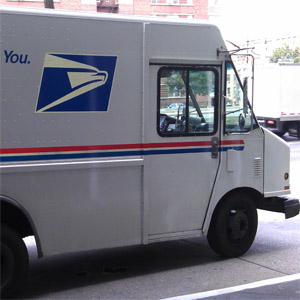My life in ATC began with 4 years Air Force then another 30 years with the Federal Aviation Admin. working tower & radar at some big international airports. I fought in the 1981 war with PATCO, survived the strike and kept a job that was just too exhilarating to walk away from. While there was nothing better than working airplanes, I did move on through several air traffic supervisory and management positions. It was a long, crazy career but I wouldn't trade a moment of it for love or lucre!
Thanks for stopping by again! Bring your friends next time. I give group discounts!
During my years in military air traffic control, there were fairly frequent emergencies. Low fuel, engine fires, engines out, hung ordnance, smoke in the cockpit – all kinds of problems. No surprise though. The military pushes their planes pretty hard. I once saw a single engine fighter jet touch down without landing gear and slide down the runway in a shower of sparks. That was riveting enough but Just as it was coming to a stop, the pilot ejected from the aircraft. Maybe he thought the thing was going to catch fire. We sure did! Maybe he just panicked. I don’t know but his parachute barely had time to open before he bounced onto the runway. That had to hurt.
Once in the civilian end of ATC, emergencies were infrequent. There were occasional unsafe landing gear indications in the cockpit. The pilot would usually request to fly past the tower so we could make a visual check. Even if the wheels appeared to be down, the landing gear could still collapse when the plane landed. We would alert the emergency responders and keep our fingers crossed. There were several other kinds of “routine” emergencies where procedures required that we activate an emergency response. Although the outcome was completely safe most of the time, you wanted those folks standing by at arm’s length just in case! You know – the Murphy’s Law factor.
Once an emergency was declared; the most challenging part of dealing with it could be moving all of the airborne and ground traffic out of the emergency aircraft’s way. Emergencies, even the more routine ones, are given number one priority.
In my experience, both military and civilian controllers reacted to emergencies in a way commensurate with the crisis at hand. If you walked into a tower or radar room during most of those “routine” emergencies, you’d probably never know the controllers were dealing with a problem. Things are, as you say, “pretty calm.” But there are those rare and extreme emergencies when we knew, by the nature of the problem, that something bad was very likely to happen. A landing flight might have only two of the three main landing gear down. In that case, you know part of that plane is going to hit the runway but you don’t know what’ll happen after that. There was a situation I described in an earlier question, where the pilot died and his passenger, who was not a pilot, had to land the plane. Another nail-biter. “All hell” never breaks loose but the tension among controllers is palpable.
Thanks for your interesting question!
Cheers,
Factor
Absolutely! We’ll shove as many departures into the sky as we can before a storm shuts off the exit routes. Of course, we can’t put more planes in the air than the receiving controllers can safely handle. Wouldn’t want to throw too many balls to the jugglers! But still; we’ll try our damndest to get as many flights out of town as we can before it's too late. The same applies with arriving flights. As long as we can get planes to the airport before the storm gets there; we’ll keep on running the traffic. Once the weather blocks an arrival route, we can sometimes get the impacted flights routed onto another arrival route. ATC’s actions during severe weather can go even further than that to keep traffic moving.
In areas like the Northeast, where there are several large cities and many busy airports, consideration is given to which airports have the most airplanes waiting to go. For example; the New York area has LaGuardia, Teterboro, Kennedy and Newark Airports. Each one can be very busy. At any given moment, each could have several flights waiting to go. There is an element of ATC known as “Traffic Management.” Their staff will assess the four airports and determine which has the most departures waiting. That airport may be given priority consideration for a while to get their traffic going – while the other airports keep theirs on the ground.
There are many other initiatives, too numerous to mention, that ATC will take to reduce or avoid weather delays. One thing we try especially hard to avoid is having so many airplanes waiting on taxiways that the landing flights can’t get to their gates or parking areas. That’s a situation we call “gridlock” and it’s not a pretty sight! There are certain airports out there, busy ones, that were built in the early days of commercial aviation for piston-powered airplanes. These places are prone to gridlock because of runway/taxiway configurations that were not designed for today’s jets and the heavy traffic volume. They get special attention when the skies turn unfriendly.
Thanks for the great question!
Factor
Good question! Basically, the answer is - If you are still actively engaged in the separation and control of air traffic by age 56, “they just boot you out the door!” There is an exception though. FAA regulations state that they may exempt a controller “having exceptional skills and experience as a controller from the automatic separation provisions until the controller becomes 61 years of age.” Assuming you were hired before turning 31 (the maximum age you can become an FAA controller is 30), you will still retire with at least 25 years of service. Depending on where you were working; you might be ready to run for the door by age 56!
There are “other FAA roles” that controllers can move into, such as staff and upper management positions, but they shouldn’t wait till they are about to get the boot before bidding on such jobs. I suspect the competition is tough.
On the bright side, Federal retirement benefits are still fairly good. Also, retiring at age 56 means you still have plenty of time left to write that book, open a lemonade stand or start up the career ladder in the fast food industry. Actually, several of the controllers I knew went to work with Aviation consulting companies that do business with the FAA. I hear they pay pretty well!
Thanks for writing!
Factor
Hi Emilio. From what I read and hear, the days of being able to keep secrets are gone. But, to your question, the process by which pilots could alert air traffic control to a hijack situation never was a secret. Pilots and controllers alike are trained in notification and response procedures. Whenever there are changes made to hijack response procedures and procedures for handling other special situations, the Federal Aviation Administration has systems in place to alert all concerned parties. Although most of it is unclassified and available to all, you probably wouldn’t see it unless you were involved in either ATC or flying airplanes.
Back in simpler times, when people were hijacking airliners to Cuba or D. B. Cooper was hijacking for the chance to skydive for dollars, the pilot’s response was relatively unknown by all but those in the aviation industry. With a hijacker in the cockpit, it might be a bit awkward for pilots to broadcast the situation to controllers until the hijacker wanted it known. However; a simple change to the aircraft’s transponder (a special radio that transmits a continuous, cryptic broadcast to ATC radar equipment) could surreptitiously alert controllers to the situation without the hijacker’s knowledge. Those days are probably gone as well. The 9/11 hijackers were obviously well schooled in transponder operation and made sure the equipment was either disabled or never set to the appropriate code broadcast.
Thanks for writing!
Factor
Parcel Delivery Mailman
 Are you a lot stronger and more fit because of your job?
Are you a lot stronger and more fit because of your job?
McDonald's Manager
 Did you have to deal with a lot of disrespectful customers? What would they say?
Did you have to deal with a lot of disrespectful customers? What would they say?
Call Center Representative
 What is the meanest thing a caller has ever said to you?
What is the meanest thing a caller has ever said to you?
Hey there Frequent Flyer! Thanks for sending a great question. I’m sure you represent the millions of other frequent flyers who’ve had those whimsical daydreams about cutting their way out of a grounded airliner with a can opener. Believe me; their frustration extends all the way up to the control tower.
How do these things happen? The root of most such delays is a reduction in system capacity; either enroute or at the airport. A recent example would be the Asiana Airlines crash on San Francisco Airport. I’m pretty sure that, immediately after the crash, every plane destined for SFO was either held on the ground at its departure point or delayed in the air until a determination could be made that the airport was accepting arrivals. Even when arrivals were resumed, SFO was left with a runway that was closed indefinitely. Closed runways will affect the capacity of any airport, slowing down both arrivals and departures.
Airport capacity refers to the number of landings and takeoffs an airport can handle per hour. Factors that may reduce capacity include such things as aircraft accidents, adverse weather, a reduction in the amount of available runways, equipment failures, controller staffing, workload, etc. There are several more but you get the idea.
Enroute capacity can be affected by many of the same factors that affect airport capacity. If, for instance, there is a large and hazardous storm system affecting the routes from New York to Chicago; the enroute controllers may have their hands full rerouting airborne flights around the bad weather. In such cases, other traffic scheduled to depart New York for Chicago during that time period may be held on the ground for a while. If you’re lucky, your flight might not have boarded yet and you can wait out your delay in the departure lounge. Other planes that have already left the gates may be held on a ramp or taxiway.
Controllers don’t like to see their taxiways blocked by delayed airplanes. If the delays are long enough, some of those planes may have to return to their gate. This can cause additional problems for controllers because flights returning to the gate can complicate the task of getting other departures out to the runways. It’s much like an ‘18 wheeler’ changing its mind half-way up the on-ramp to a busy Interstate highway, then deciding to turn around. A critical mass of congestion can occur. There have been situations where airports became so congested with planes trying to get on or off the ramps while others sat waiting on taxiways that the moment comes when no one could move at all. Total gridlock. When that happens, the last thing needed is more arrivals, so they too are stopped and placed into holding patterns.
Reduced capacity and the resulting delays, especially at the busiest airports, are a major frustration to everyone involved; particularly those who are out in the thick of it, like pilots, passengers and air traffic controllers.
Thanks again for writing!
Factor
Greetings CollegeGirl! I am happy to see a continuing interest in the ATC profession.
The situation you describe is going to make it difficult for you to land an ATC position with the Federal Aviation Administration unless you can somehow get two to four years of college with an aviation related degree. Other options include gaining ATC experience in the military, which was my pathway in. Or perhaps you might apply for employment with one of the private ATC providers. You should also consider flight training while you are in college. Having your pilot’s license will help you meet the threshold for aviation related experience.
Best of luck and thanks for writing!
Factor
Good hearing from you Aaron. The gear-up landing at Newark was pretty dramatic. Whenever airplane bellies rub runways; sparks will fly! Your question is a good one because videos like the Newark landing show up in the news periodically, yet it’s hard to understand exactly what’s going on. People watch and wonder if a pilot can actually train for such a thing, how does it happen, what are the risks, etc.
First off; pilots obviously never make gear-up landings for practice. That would be kinda like practicing shooting yourself in the foot. The best way to rehearse for such an event is to practice landing WITH the landing gear extended. The trick will be in how the plane approaches the runway, which is going to be pretty much the same as a normal landing. The airplane will be slowed to the normal landing speed, with the nose pointed straight down the runway. Once over the runway, the pilot will ‘flare’ the aircraft; raising the nose to bleed off more speed as the plane descends those final few feet to the surface. Once on the runway, the pilot can use the aircraft’s rudder to try keeping the plane on the runway centerline.
How gear-up landings occur can vary. The most obvious reason is a mechanical malfunction. There is another, fairly common, reason. My flight instructor once told me that there are two kinds of pilots; those who’ve forgotten to put the gear down before landing and those who WILL forget! It’s not quite that extreme but sometimes pilots, especially pilots with low experience levels, can overlook that one important detail in an otherwise perfect landing. If there is an operational control tower at the airport; an alert controller may notice and have the pilot pull up before it’s too late. If the field is uncontrolled, the pilot may not be so lucky!
Risks associated with these landings are pretty much what you’d expect; lots of damage to the plane, a possibility of fire, personal injury and maybe even damage to the runway and associated lighting. No matter what happens – it’s never good and I do not recommend it!
Thanks for writing!
Factor
-OR-
 Login with Facebook
Login with Facebook (max 20 characters - letters, numbers, and underscores only. Note that your username is private, and you have the option to choose an alias when asking questions or hosting a Q&A.)
(A valid e-mail address is required. Your e-mail will not be shared with anyone.)
(min 5 characters)
By checking this box, you acknowledge that you have read and agree to Jobstr.com’s Terms and Privacy Policy.
-OR-
 Register with Facebook
Register with Facebook(Don't worry: you'll be able to choose an alias when asking questions or hosting a Q&A.)